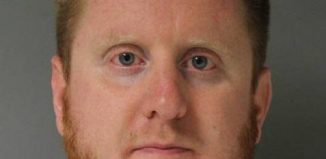Stony Brook undergrad fights for student suicide prevention law in New York state
By Aramis Khorso
The ongoing struggle between adolescents and suicide problems has become increasingly prominent in recent years. According to the Centers for Disease Control and Prevention, suicide has been among the top three leading causes of death for children and young adults ages 10 through 34.
The battle against anxiety and depression, which are the main causes of adolescent suicide, has been surging among young adults. According to the Journal of Developmental & Behavioral Pediatrics, such mental health disorders, which are treatable, have increased since 2003 among children aged 6–17. The mental health and suicide epidemic rose to such unignorable heights that the U.S. Surgeon General declared the pediatric mental health crisis a national emergency in 2021.
To many, these statistics are rightly shocking and frightening. For Stony Brook University undergraduate senior Vignesh Subramanian, they were a call for action. He had observed the consequences of untreated anxiety and depression in children throughout his own adolescence. This, as well as the declared national crisis combined, made him decide it was time to take a stance and help out other young adults suffering from mental health problems.
“We were already aware that this was a new phenomenon,” Subramanian said. “People had not been this stressed before — I was seeing this among my peers. Something had to be done. It was amounting to something of a crisis, and then these official declarations came out.”
Subramanian recognized that many communities, especially schools and other educational facilities, were unequipped to respond to this mental health crisis adequately. He pointed out that mental health disorders are still “overtly stigmatized,” adding, “Parents and schools alike don’t know how to support students and get the help they need or can’t accommodate them properly.”
In early 2022, Subramanian established a youth-led organization called One More Option that is dedicated to helping provide as many resources and services as they can to young adults suffering from anxiety, depression or any suicidal-related mental issues. Subramanian emphasized during this interview that “a youth-led, youth-driven response to the crisis was what was needed.”
He decided to take his mission to the state Legislature in Connecticut in 2022. “Our M.O. is to draft legislation on our own, then present it to the state Legislature, then we advance it from there,” he said.
Working with former Connecticut Sen. Will Haskell (D-Westport), Subramanian was able to successfully draft policies that he wrote himself into the Connecticut General Assembly. He was able to draft two main reforms: The establishment of mental health days in K–12 schools and more accessible outpatient counseling sessions that minors would be able to seek.
As can be expected, there was some opposition that Subramanian had to face while fighting to get his reforms drafted. However, Haskell was able to provide what Subramanian called a “powerful rebuttal” of the counterarguments made against the reforms. “It was inspiring to see how we were able to surmount that opposition,” Subramanian recalled.
One More Option deservedly enjoyed its victory in Connecticut, but didn’t stop there. Subramanian and his organization hope to have the same success they’ve had in Connecticut in New York. Currently, New York has no policy on student suicide prevention. Since 2019, New York State Sen. Brad Hoylman-Sigal (D-Manhattan) and Assemblyman Daniel O’Donnell (D-Manhattan) have been repeatedly presenting the Student Suicide Prevention Act to the state Legislature. Unfortunately, the SSPA has been stalled over the past few years due to “disputes over its contents.”
Using the framework provided by the SSPA and with the support of over 20 collegiate student governments from schools in New York, Subramanian and One More Option hope to see a statewide suicide prevention law enacted. Recently, Subramanian and Hoylman-Sigal’s office have incorporated some reforms Subramanian wrote into the SSPA, which have been approved.
One of the main reforms that Subramanian made to the SSPA was the inclusion of college students. With these revisions, the SSPA would require K–12 schools, as well as higher educational facilities, to create guidelines and policies on how staff would react to students in suicidal crises. Subramanian spoke about the “optimistic feeling” he has due to the widespread support the act is gathering for this reformed version of the SSPA.







